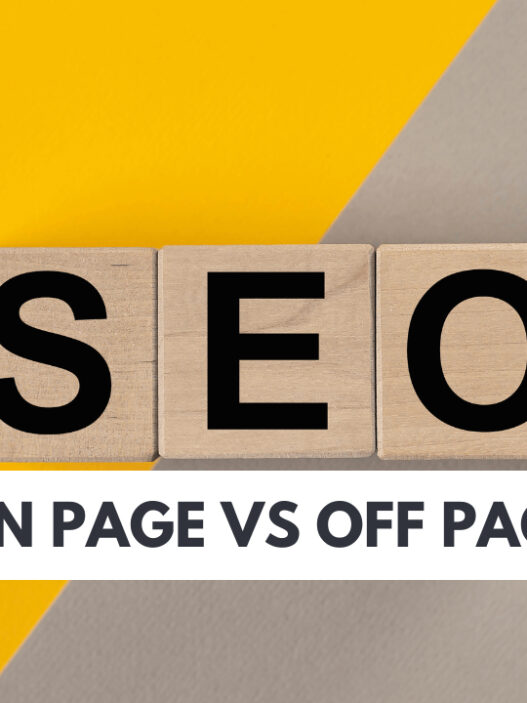Communication, one of the fundamental aspects of human nature, has long been a
catalyst for building relationships and advancing societies. It facilitates the exchange
of ideas, emotions, and knowledge, fostering collaboration and understanding
between individuals and communities. Through effective communication, humans
have shaped cultures, established governance systems, and propelled trade,
contributing to the development of civilisations. Without the ability to convey thoughts
and feelings, human civilisation simply would not have progressed to where it is
today.
In the modern business world, corporate communications have taken on an even
greater significance, especially with the advent of the internet and the rise of
hyperconnectivity. While digital platforms such as social media and messaging apps
offer unprecedented opportunities to engage with global audiences, they also
introduce challenges like information overload and misinterpretation. For businesses,
particularly in regions like Saudi Arabia, partnering with a local Saudi PR agency in
addition to having a strong corporate communications strategy has become essential
to navigate these complexities.
What is corporate communication?
What is corporate communication you may ask? Quite simply, corporate
communications encompass how each company shares information, both within its
team and externally to manage brand perception. On a basic level, corporate
communications is the backbone of maintaining cross-company contact, ensuring all
departments can work together towards a shared goal. Corporate communications’
external function is to help the company achieve various purposes, comprising
maintaining its brand identity, elevating brand reputation, managing crises, and
making sure any discrepancies perceived about the company’s offerings or activities
are clarified.
Why is corporate communications important?
Now that we’ve established what corporate communications is, let’s explore why
having a strategy in place matters. Firstly, much of any enterprise’s success relies on
a well-thought-out corporate communication strategy, playing a key role in managing
and enhancing an organisation’s reputation while also ensuring everything runs
smoothly behind the scenes. Furthermore, corporate communication gives
companies a competitive edge, allowing them to build and maintain meaningful
relationships with stakeholders.
What’s more, the right corporate communications showcase a company’s unique
brand identity, strengths, and commitment to its values. This creates characteristics
that define the company, making it stand out from competitors and achieve its
goals. On a more personal level, corporate communications fosters loyalty amongst
customers through genuine messaging and engages the workforce to ensure the
long-term sustainability of your enterprise.
A corporate communications strategy can be divided into three key areas, including:
Management Communication: This type of corporate communication is what
connects management with the rest of the team. By ensuring consistency
across all departments within the organisation, everyone can work in harmony
toward a shared goal and prioritise tasks in line with the CEO’s vision.
Marketing Communication (MarCom): MarCom deals with how a company
promotes its brand, products, and services to the outside world. It can involve
crafting strategic messages and campaigns that not only attract customers but
also build the company’s image within the market.
Employee Communication: Last but certainly not least, this area is about
keeping the internal workforce informed, engaged, and motivated. Employee
communication aims to foster an open and supportive culture by ensuring that
employees are consistently updated on important news, changes, and
opportunities within the organisation.
Internal vs external communications
You may have heard the phrase ‘it’s what’s on the inside that counts’, however, in the
realm of corp communications, one could argue that both internal and external
corporate communications are equally as important. Internal corporate
communications refer to the messaging that is intended for the employees or
stakeholders of an organisation. The goals of internal corporate communication are
usually to inform, motivate, align, or engage individuals with the organisation’s vision.
External corporate communications are messages that are delivered to customers,
clients, partners, investors, media, or the general public. For the most part, external
corporate communication’s main objectives are to promote, persuade, educate, or
influence potential clients with the products, services, or the overall brand.
How to create a corporate communications plan?
Now that we’ve covered each type of corporate communication, the next thing that
comes to mind will most likely be – ‘How do I Improve my corporate communication
skills?’ To put it simply, crafting the perfect corporate communications plan is based
on your target audience and the medium you use to engage them. The main
categories include:
Written Communication: This encompasses all text-based content, such as
website content, press releases, memos, reports, advertisements, emails, and
beyond. Written Communication is crucial for delivering clear, structured
messages that can be easily shared and referenced.
Verbal Communication: This is all about talking the talk, including meetings,
interviews, video presentations, and press conferences, offering opportunities
for real-time engagement and clarification. Verbal communication adds an
extra layer of depth and a humanistic touch to a company’s corporate
communication.
Visual Communication: Videos, photographs, infographics, illustrations, and
branding agency are all part of visual communication. These tools help convey
information quickly and memorably while ensuring your brand’s visual identity
is consistent.
When considering how to improve your corporate communications strategy, it’s
important to understand these distinct types of communication and how to use each
effectively. To build a strong corporate communications strategy, you’ll also need to
create a detailed plan for each of the following pillars:
1. Brand Talent: At the heart of every enterprise’s success is its team. Brand
talent is invaluable as highly skilled individuals perform better, leading to
enhanced productivity and profitability. A company’s image in the job
market can also affect overall brand value and play a key role in
recruitment, helping to expand the company in the future.
2. Brand Identity: Developing a strong brand identity not only drives
customer loyalty but also leads to a noticeable boost in repeat business. A
well-defined brand identity clearly communicates your values, mission, and
unique offerings, resonating deeply with your target audience.
3. Brand Reputation: This refers to the public’s perception of your
company’s trustworthiness and reliability, shaped by factors such as
product quality, customer service, support, delivery, and overall brand
visibility. A strong reputation is built when your company consistently
meets or exceeds customer expectations, delivering memorable
experiences that set your brand apart.
4. Internal Communication: This type of corporate communication ensures
that employees are not only informed about key initiatives, policies, and
updates but also remain engaged and aligned with the company’s goals.
Without effective internal communication, employees can feel
disconnected from the organisation’s mission, which leads to confusion,
inefficiency, and disengagement.
5. Marketing & Social Media: One of the most significant advantages of
using social media and marketing in corporate communication is the ability
to significantly increase brand visibility and awareness. By leveraging
these platforms, businesses can reach a broader audience more quickly
than traditional media, making the message more accessible to more
people.
6. Customer Support: Customers are more likely to give repeat business to
companies that offer excellent customer service increasing profitability.
What’s more, this type of corporate comms gives enterprises direct contact
with its customer base, allowing the company to gain further insight into
customer habits and preferences helping to improve overall service.
7. Media & PR: Public relations is a vital component of any corporate
communications strategy, enabling companies to enhance their reputation
and attract or retain clients through diverse media channels. Partnering
with a reputable PR agency in Riyadh can significantly influence public perception,
fostering long-term success and growth.
8. Crisis Communication: As a crucial element of any corporate
communication strategy, crisis communication enables businesses to
protect their reputation when unexpected disruptions arise. Clear, strong
communication allows companies to respond swiftly to threats and
manage public scrutiny with confidence. By crafting messages and actions
that align with brand values, businesses can effectively address crises,
while reflecting on past events, which helps inform and improve future
response strategies.
In the hyperconnected modern world, a comprehensive corporate communications
strategy is more important than ever. Although the internet and social media
platforms have opened up a world of possibilities, they also bring increased risks of
miscommunication, public scrutiny, and rapid crisis escalation. Therefore, a well-
rounded corporate communications strategy not only helps businesses harness the
benefits of digital platforms but also prepares them to navigate potential challenges
effectively.











